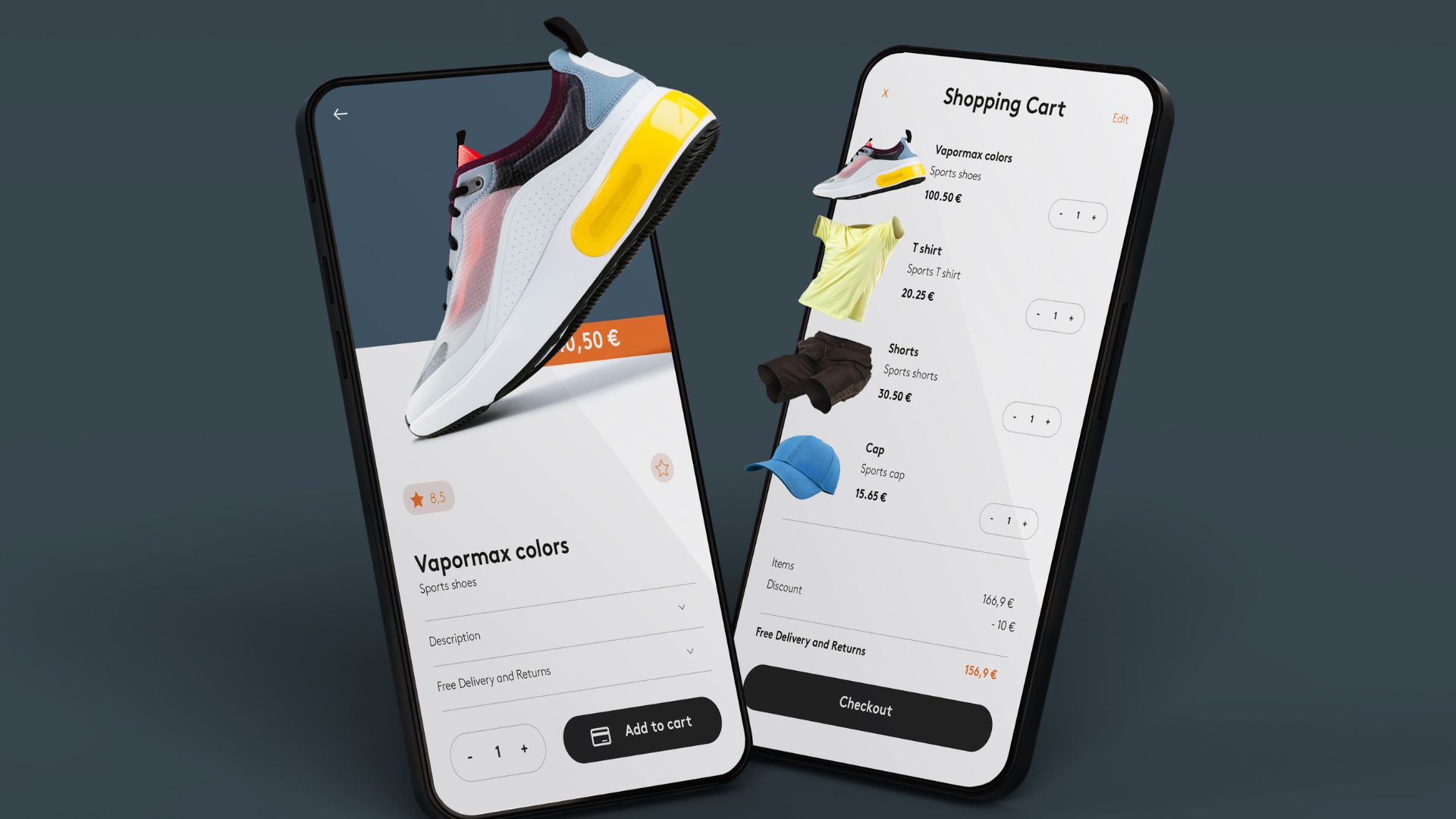
In today’s rapidly evolving digital landscape, the significance of having a mobile app for your business cannot be overstated. It represents not just an opportunity, but a necessity for businesses looking to thrive in a highly competitive market. The top 10 reasons why your business needs a mobile app now encompass a multitude of benefits that directly contribute to your company’s growth and success.
Firstly, increased accessibility provided by a mobile app ensures that your products or services are available to customers anytime, anywhere, enhancing convenience and expanding your reach. Moreover, enhanced customer engagement through personalized messaging and real-time interactions fosters stronger connections with your audience, leading to increased brand loyalty and repeat business. The visibility gained by having a presence on app stores elevates your brand’s credibility and distinguishes you from competitors, while also serving as a direct marketing channel for targeted promotions and offers.
Additionally, the competitive edge gained from offering unique features and a seamless user experience sets your business apart, attracting and retaining customers in a crowded market. Furthermore, the ability to provide better customer service through in-app support and streamlined operations not only improves customer satisfaction but also increases operational efficiency. Beyond these advantages, a mobile app opens up additional revenue streams through in-app purchases, subscriptions, and partnerships, further diversifying your income sources.
In conclusion, investing in a mobile app for your business is no longer just a trend but a strategic imperative in today’s digital age. Embracing this technology now positions your business for long-term success and growth, ensuring that you remain relevant and competitive in an ever-changing market landscape.
Furthermore, the versatility and adaptability of a mobile app allow your business to stay agile and responsive to evolving customer needs and market trends. With the ability to quickly update and iterate on features and functionalities, you can continuously improve the user experience and stay ahead of the competition. Moreover, a mobile app serves as a valuable data collection tool, providing insights into customer behavior, preferences, and trends that can inform strategic decision-making and marketing efforts.
By harnessing the power of analytics, you can refine your targeting, optimize your offerings, and maximize your return on investment. Additionally, in today’s hyper-connected world, having a mobile app reinforces your brand’s modernity and innovation, signaling to customers that you are forward-thinking and tech-savvy. This perception can attract tech-savvy consumers who prioritize convenience and digital experiences, further expanding your customer base.
In essence, a mobile app is not just a tool for facilitating transactions; it’s a powerful asset that can drive growth, foster customer loyalty, and propel your business into the future. Embracing this technology now positions your business as a leader in your industry, ready to seize opportunities and overcome challenges in the ever-evolving digital landscape.
Your Business Needs a Mobile App NOW
In the rapidly evolving digital landscape, the necessity for businesses to adapt and embrace mobile technology has never been more critical. The profound shift towards mobile consumption habits among consumers demands a corresponding response from businesses – a response that takes the form of a mobile app. Today, a mobile app isn’t just a supplementary feature for businesses; it’s a strategic imperative for survival and success. The reasons are abundant and compelling.
Firstly, a mobile app exponentially increases accessibility, putting your business literally at the fingertips of your customers around the clock, facilitating seamless interactions and transactions irrespective of time or location. Furthermore, it serves as a powerful tool for enhancing customer engagement, with features like push notifications and personalized content fostering deeper connections and brand loyalty. In an increasingly crowded marketplace, having a mobile app elevates your brand’s visibility and credibility, setting you apart from competitors and signaling to consumers that you’re attuned to modern trends and technologies.
This not only boosts your competitive edge but also solidifies customer loyalty, as you’re able to reward and incentivize repeat purchases through exclusive offers and loyalty programs embedded within the app. Moreover, a mobile app serves as a direct marketing channel, allowing for targeted and personalized communication with your audience, driving conversions and sales like never before. Operationally, it streamlines various processes, from ordering to customer service, enhancing efficiency and productivity across the board.
Lastly, it opens up new revenue streams beyond traditional avenues, such as in-app purchases and advertising partnerships, thereby diversifying and bolstering your bottom line. In essence, the case for investing in a mobile app for your business is unequivocal – it’s not just about keeping up with the times; it’s about future-proofing your business and positioning it for sustained growth and success in an increasingly mobile-centric world.
Table of Contents
Mobile App for Business Growth
In today’s rapidly evolving business landscape, leveraging a mobile app has emerged as a pivotal strategy for driving growth and securing a competitive edge. Businesses across industries are recognizing the transformative potential of mobile apps in expanding their reach, enhancing customer engagement, and boosting revenue streams. With the proliferation of smartphones and the increasing reliance on mobile devices for daily tasks, having a mobile app has become imperative for businesses looking to stay relevant and thrive in the digital era.
A mobile app serves as a powerful tool for business growth by offering unparalleled accessibility to products or services, thereby catering to the on-the-go lifestyle of modern consumers. Through intuitive interfaces and seamless functionalities, businesses can provide customers with a convenient and personalized shopping experience, fostering brand loyalty and driving repeat purchases. Moreover, with features like push notifications and in-app messaging, businesses can engage customers in real-time, delivering targeted promotions, updates, and personalized recommendations that resonate with their interests and preferences.
Beyond enhancing customer engagement, a mobile app also amplifies brand visibility and credibility in the market. By establishing a presence on prominent app stores, businesses can expand their reach to a wider audience and stand out amidst competitors. A well-designed and optimized app not only attracts potential customers but also reinforces the brand’s image as innovative, modern, and customer-centric. This increased visibility translates into heightened brand awareness, trust, and ultimately, greater market share.
Furthermore, a mobile app opens up avenues for diversifying revenue streams and driving incremental sales. In addition to facilitating direct purchases, businesses can monetize their apps through various means such as in-app purchases, subscriptions, advertising, and partnerships. By tapping into these additional revenue streams, businesses can maximize their profitability and capitalize on the immense potential of the mobile ecosystem.
In essence, a mobile app is not just a technological asset but a strategic imperative for businesses looking to thrive and grow in today’s hyperconnected world. By embracing mobile app development and optimization, businesses can unlock a myriad of opportunities for expansion, innovation, and sustained success. Whether it’s improving customer engagement, increasing brand visibility, or driving revenue growth, the benefits of a mobile app are undeniable, making it an indispensable tool for businesses striving for growth and competitiveness in the digital age.
Increased Accessibility
Increased accessibility is a cornerstone of modern business strategy, and nothing embodies this more effectively than a mobile app. In today’s fast-paced world, consumers expect instant access to information, products, and services, regardless of their location or the time of day. A mobile app breaks down the barriers of traditional brick-and-mortar establishments, allowing businesses to transcend physical limitations and be present in the palms of their customers’ hands.
Whether it’s browsing products on the go, making purchases from the comfort of home, or accessing essential services with just a few taps, a mobile app offers unparalleled convenience and flexibility. By eliminating the constraints of time and place, businesses can cater to the needs of their customers 24/7, fostering loyalty and satisfaction. Moreover, in an increasingly mobile-centric society, where smartphones have become an indispensable part of everyday life, businesses that embrace mobile apps gain a competitive edge by meeting the evolving demands and expectations of their audience.
In essence, increased accessibility through a mobile app is not just about convenience—it’s about empowering businesses to connect with their customers anytime, anywhere, and ultimately drive success in the digital age.
Enhanced Customer Engagement
Enhanced customer engagement through a mobile app is akin to opening a direct line of communication between businesses and their clientele, fostering deeper connections and loyalty. Through features like push notifications, personalized content, and in-app messaging, businesses can create tailored experiences that resonate with individual users on a personal level. These interactions go beyond mere transactions; they become meaningful engagements that leave a lasting impression on customers.
By understanding their preferences, behavior, and needs, businesses can deliver relevant offers, recommendations, and updates in real-time, capturing their attention and driving engagement. Furthermore, the convenience of mobile apps ensures that customers can interact with businesses whenever and wherever they choose, whether it’s to browse products, seek assistance, or make a purchase.
This seamless accessibility not only strengthens the relationship between businesses and customers but also positions the brand as attentive, responsive, and customer-centric. Ultimately, enhanced customer engagement through a mobile app not only increases satisfaction and loyalty but also drives business growth and success in an increasingly competitive market landscape.
Brand Visibility
In today’s crowded marketplace, establishing and maintaining brand visibility is paramount for businesses striving to stand out amidst fierce competition. A mobile app serves as a powerful tool in enhancing brand visibility, offering a direct channel to connect with consumers on a personal level. By having a presence on popular app stores, businesses exponentially increase their reach, tapping into vast audiences of potential customers who actively browse for new apps and services.
Moreover, a well-crafted app listing with compelling visuals, concise descriptions, and strategic use of keywords can significantly boost visibility and attract users searching for solutions that align with their needs. Furthermore, the mere presence of a mobile app in the digital realm conveys a sense of modernity and innovation, positioning the brand as forward-thinking and tech-savvy. This perception not only enhances credibility but also fosters trust among consumers, who are more likely to engage with brands that embrace cutting-edge technology.
Additionally, a mobile app provides opportunities for branding through personalized experiences, such as customized notifications, in-app promotions, and tailored content, further reinforcing brand identity and fostering deeper connections with users. Ultimately, investing in a mobile app is not just about expanding reach—it’s about solidifying brand visibility, leaving a lasting impression, and ultimately driving business growth in today’s dynamic digital landscape.
Competitive Edge
In today’s fiercely competitive business environment, gaining a competitive edge is essential for long-term success and sustainability. One of the most effective ways to achieve this edge is by investing in a mobile app for your business. A mobile app not only enhances your brand’s visibility and accessibility but also sets you apart from competitors by offering unique features and functionalities that cater to the evolving needs and preferences of your target audience.
By providing a seamless and intuitive user experience, your app can captivate users and keep them engaged, fostering stronger connections and loyalty. Moreover, a well-designed mobile app demonstrates your commitment to innovation and customer-centricity, positioning your business as a leader in your industry. With the ability to deliver personalized content, promotions, and offers directly to users’ fingertips, you can create a more meaningful and impactful relationship with your customers, driving increased sales and revenue.
Additionally, a mobile app enables you to gather valuable insights into user behavior and preferences, empowering you to make data-driven decisions and continuously improve your products or services. In essence, investing in a mobile app not only gives you a competitive edge but also opens up endless possibilities for growth, expansion, and success in today’s digital landscape.
Improved Customer Loyalty
Improved customer loyalty is one of the most significant benefits of having a mobile app for your business. By offering exclusive rewards, personalized offers, and seamless user experiences, a mobile app becomes a powerful tool for fostering stronger relationships with your customers. Through loyalty programs integrated within the app, you can incentivize repeat purchases and engagement, turning casual customers into loyal brand advocates.
Moreover, the ability to collect and analyze user data allows you to gain insights into customer preferences, behaviors, and purchase patterns, enabling you to tailor your offerings and communications to better meet their needs. By consistently providing value and convenience through your mobile app, you build trust and credibility with your audience, ultimately leading to increased customer retention and lifetime value. Furthermore, the direct communication channels offered by mobile apps allow you to engage with customers in real-time, addressing their concerns, providing assistance, and soliciting feedback promptly.
This level of personalized attention not only enhances the overall customer experience but also strengthens the bond between your brand and its loyal patrons. In essence, an investment in a mobile app translates to an investment in long-term customer loyalty, ensuring sustainable growth and success for your business in the competitive marketplace.
Direct Marketing Channel
A mobile app serves as a direct marketing channel, revolutionizing the way businesses connect with their customers. Unlike traditional marketing channels that rely on broad-reaching strategies, a mobile app enables businesses to engage with their audience on a more personal and targeted level. Through features like push notifications, in-app messaging, and personalized content, businesses can deliver relevant promotions, offers, and updates directly to users’ smartphones.
This direct line of communication allows for timely and tailored interactions, enhancing customer engagement and fostering stronger relationships. Moreover, by leveraging user data and analytics, businesses can gain valuable insights into customer behavior and preferences, enabling them to refine their marketing strategies and deliver content that resonates with their audience.
Ultimately, a mobile app empowers businesses to cut through the noise of traditional advertising and establish meaningful connections with their customers, driving loyalty, retention, and ultimately, revenue.
Better Customer Service
Better customer service is a crucial aspect of any successful business, and a mobile app provides a powerful platform to enhance this aspect further. With an app, businesses can offer immediate support through features like in-app chat, FAQs, and ticketing systems, enabling customers to resolve queries or issues quickly and conveniently. This accessibility to support services not only increases customer satisfaction but also fosters loyalty and trust in the brand.
Additionally, by integrating advanced functionalities such as chatbots or AI-powered assistance, businesses can offer round-the-clock support without significantly increasing operational costs. Moreover, a mobile app allows businesses to gather valuable feedback from customers through surveys or ratings, enabling them to continually improve their products or services based on real-time insights.
By prioritizing better customer service through a mobile app, businesses can differentiate themselves in a competitive market, leading to increased customer retention, positive word-of-mouth, and ultimately, long-term success.
Streamlined Operations
Streamlining operations through the integration of a mobile app is a game-changer for businesses seeking efficiency and agility. By leveraging the capabilities of a well-designed app, organizations can automate manual tasks, optimize workflows, and enhance overall productivity. For instance, integrating mobile app functionalities such as ordering, payment processing, and inventory management not only reduces the time and effort required to complete these tasks but also minimizes the risk of errors and delays.
Moreover, real-time access to critical business data and analytics empowers decision-makers to make informed choices swiftly, leading to more effective resource allocation and strategic planning. Additionally, features like customer relationship management (CRM) tools within the app enable businesses to streamline communication with clients, track interactions, and nurture relationships effectively.
Furthermore, the ability to customize and tailor the app to specific business needs ensures that processes are aligned with organizational objectives and industry standards. Overall, investing in a mobile app for streamlined operations not only drives operational efficiency but also positions businesses for sustained growth and competitiveness in today’s dynamic market landscape.
Additional Revenue Streams
In today’s rapidly evolving business landscape, the pursuit of additional revenue streams has become a paramount objective for businesses seeking sustainable growth and profitability. Among the plethora of strategies available, the integration of a mobile app stands out as a powerful avenue to diversify revenue streams. Beyond the conventional model of selling products or services, a mobile app offers a multifaceted platform to explore innovative monetization avenues.
Through in-app purchases, businesses can offer exclusive digital content, premium features, or virtual goods, enticing users to enhance their experience and unlock additional value. Subscription models present another lucrative opportunity, allowing businesses to offer recurring services or access to premium content in exchange for a recurring fee, ensuring a steady stream of revenue over time. Furthermore, leveraging the expansive reach of a mobile app, businesses can capitalize on advertising opportunities by partnering with brands to display targeted ads within the app, generating ad revenue based on impressions or clicks.
Strategic collaborations and partnerships with complementary businesses also present avenues for generating additional revenue through cross-promotions, affiliate marketing, or revenue-sharing arrangements. By embracing the versatility of a mobile app as a revenue-generating platform, businesses can tap into new streams of income, diversify their revenue sources, and unlock untapped potential for growth and profitability in the digital age.
Conclusion
In conclusion, the imperative for businesses to embrace mobile apps is undeniable in today’s rapidly evolving digital environment. The significance of having a mobile app extends far beyond mere convenience; it’s about adapting to the shifting dynamics of consumer behavior and meeting the ever-growing expectations of a digitally savvy audience. As we’ve explored in detail, mobile apps offer businesses a myriad of benefits, from heightened accessibility and enhanced customer engagement to improved brand visibility and streamlined operations.
Moreover, they provide a competitive edge by facilitating direct marketing channels, fostering better customer service experiences, and unlocking additional revenue streams. By investing in a mobile app, businesses not only position themselves as forward-thinking and customer-centric but also open doors to new opportunities for growth and expansion. In essence, a mobile app isn’t just a tool; it’s a strategic asset that has the potential to revolutionize the way businesses operate, interact with customers, and thrive in an increasingly mobile-centric world.
Therefore, the time to act is now. Businesses that hesitate risk falling behind the curve and missing out on the countless advantages that a well-designed and implemented mobile app can offer. So, seize the moment, embrace innovation, and embark on the journey toward a more connected, efficient, and successful future for your business.
Reasons to Invest in Mobile App

In today’s rapidly evolving business landscape, investing in a mobile app has become imperative for companies looking to thrive in the digital age. The reasons to invest in a mobile app are manifold and compelling. Firstly, a mobile app enhances accessibility, ensuring that your products or services are available to customers anytime, anywhere, thereby expanding your reach and potential customer base. Moreover, a mobile app fosters enhanced customer engagement through personalized interactions, push notifications, and tailored content, leading to stronger brand loyalty and increased sales opportunities.
Additionally, having a presence on app stores boosts brand visibility and credibility, setting your business apart from competitors and positioning it as innovative and customer-centric. In a fiercely competitive market, a mobile app provides a distinct advantage, offering unique features and functionalities that cater to the evolving needs and preferences of consumers. Furthermore, mobile apps streamline operations, automate tasks, and facilitate seamless transactions, resulting in improved efficiency and cost savings for businesses.
Beyond operational benefits, mobile apps also serve as powerful marketing tools, providing a direct channel for targeted promotions, advertisements, and customer support services. Importantly, mobile apps open up new revenue streams through in-app purchases, subscriptions, and advertising opportunities, diversifying income sources and driving sustained business growth. In conclusion, investing in a mobile app is not just a choice but a strategic imperative for businesses seeking to remain competitive, engage customers effectively, and unlock new avenues for success in today’s digital marketplace.
Business Mobile App Benefits
In today’s fast-paced and increasingly digital business environment, the benefits of having a mobile app for your business cannot be overstated. Firstly, a mobile app enhances accessibility, allowing customers to engage with your products or services anytime, anywhere, thus expanding your reach and potential customer base. Moreover, it fosters enhanced customer engagement through features like push notifications and personalized content, strengthening brand loyalty and fostering lasting relationships with your audience.
Beyond mere visibility, a mobile app provides a competitive edge, distinguishing your business from competitors and positioning it as innovative and customer-centric. Additionally, the direct marketing channel offered by mobile apps enables targeted and personalized communication with customers, driving sales and conversion rates. Furthermore, mobile apps streamline operations by automating tasks such as ordering and payment processing, improving efficiency and reducing operational costs.
Importantly, a mobile app opens up new revenue streams through in-app purchases, subscriptions, and advertising opportunities, contributing to the overall growth and sustainability of your business. In essence, investing in a mobile app isn’t just about staying relevant; it’s about thriving in an increasingly mobile-centric world, where convenience, engagement, and innovation are paramount.
FAQs About Top 10 Reasons Your Business Needs a Mobile App NOW:
- How long does it take to develop a mobile app for my business?
- The time it takes to develop a mobile app for your business can vary depending on several factors, including the complexity of the app, desired features, and the expertise of the development team. Typically, a simple app may take a few weeks to develop, while more complex apps with advanced functionalities could take several months.
- Are mobile apps suitable for all types of businesses, regardless of size?
- Yes, mobile apps can benefit businesses of all sizes, from small startups to large enterprises. Whether you’re a local coffee shop looking to enhance customer loyalty or a multinational corporation aiming to expand your reach, a well-designed mobile app can help you achieve your business goals and connect with your target audience more effectively.
- What security measures are in place to protect customer data on mobile apps?
- Mobile app developers implement various security measures to protect customer data, such as encryption, secure authentication methods, and regular security updates. Additionally, compliance with data protection regulations like GDPR ensures that customer data is handled responsibly and securely.
- Can a mobile app integrate with existing business systems and software?
- Yes, mobile apps can integrate seamlessly with existing business systems and software through APIs (Application Programming Interfaces). This integration allows for data sharing and synchronization between the mobile app and other backend systems, such as CRM (Customer Relationship Management) software or inventory management systems, enhancing efficiency and workflow automation.
- How can I measure the success and ROI of my mobile app investment?
- Measuring the success and ROI (Return on Investment) of a mobile app investment involves tracking various metrics, such as app downloads, user engagement, retention rates, and revenue generated through the app. Analyzing these metrics over time can provide insights into the app’s performance and its impact on your business goals. Additionally, conducting user surveys and gathering feedback can help gauge customer satisfaction and identify areas for improvement.


